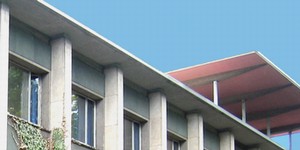DANAE

The objectives of DANAE are to specify, develop, integrate and validate in a realistic testbed a complete framework (with servers, network devices and terminals) for context-aware, dynamic and flexible media adaptation, delivery and consumption, able to provide end-to-end quality of multimedia service at a minimal cost to the end-user. An application will be specifically developed and implemented on a demonstrator, to illustrate the pioneering service concepts and features made possible by the Project.
The work covers: (i) the definition of scalable media formats with their associated meta-data which provide, among others, information on coding, online processing, intuitive content access, etc., (ii) the adaptation of scalable media resources to the session context in a framework supporting dynamic and distributed adaptations, as well as global optimization of fully featured multimedia scenes comprising multiple resource types, i.e. not only single media adaptation as is presently the case, but fully featured multimedia scene adaptation through global optimization of audio, video, 2D graphics, 2D/3D virtual characters all together and (iii) the transport and delivery of multimedia content to the end-user. The specific constraints introduced by the multiplicity of networks and terminals that may be involved in a communication session will be considered for the design of error resilient and efficient coding schemes. Efficiency is meant in terms of both bitrate and required processing power in the player. The inter-relationship of content adaptation and scalability with Digital Rights Management (DRM) and charging issues is explored.
The DANAE project is proposed by a consortium of 11 partners, grouping 5 academic institutions (ICL, ENST, the Universities of Aachen, Geneva and Klagenfurt), two research labs (INRIA and IMEC), two Network Operators (France Telecom and Deutsche Telekom), an industrial partner (SIEMENS) and a museum (MUSEON). The teams allocated to the project by the partners have all strong experience in the technical areas covered by DANAE. All have been or are currently involved in European projects and a majority of them have already partnered in several projects, some of them still running. Moreover, many team members are active contributors or even major actors (sub-group chairmen, standards editors and heads of national delegations) in the MPEG standardization effort.

